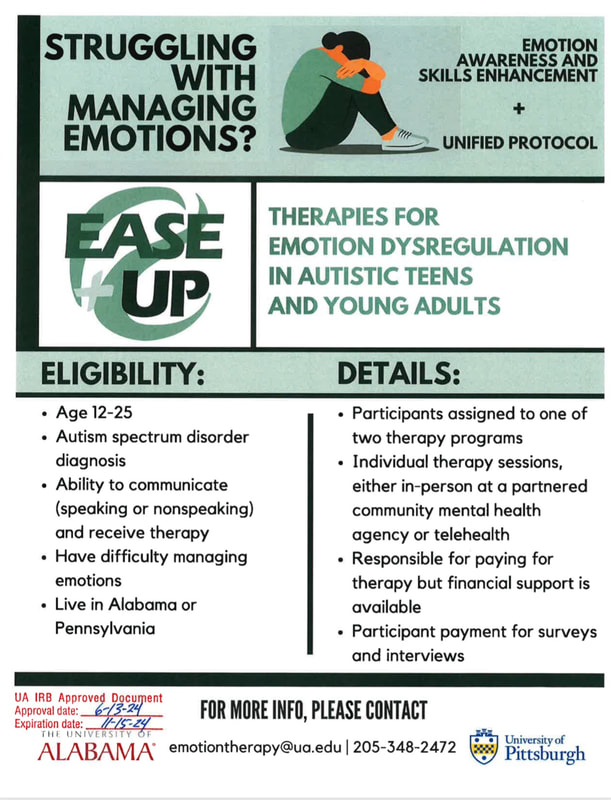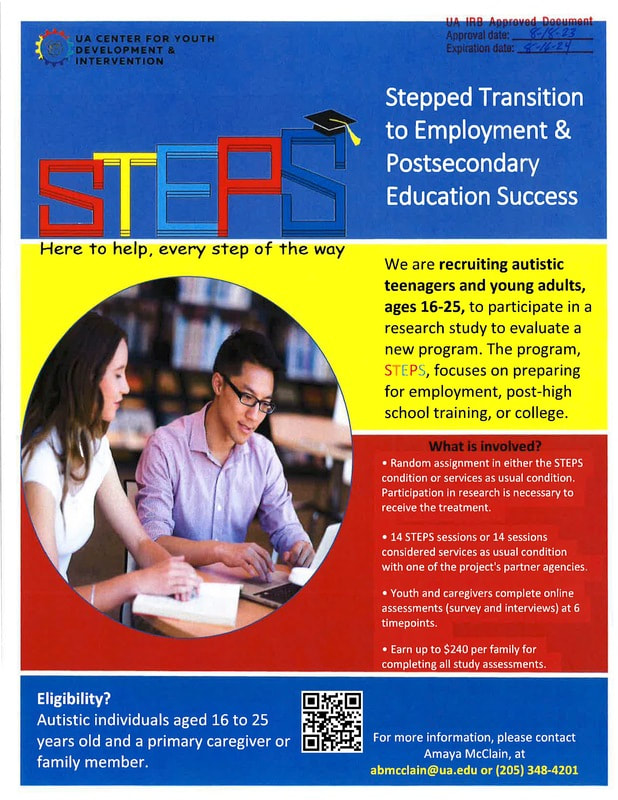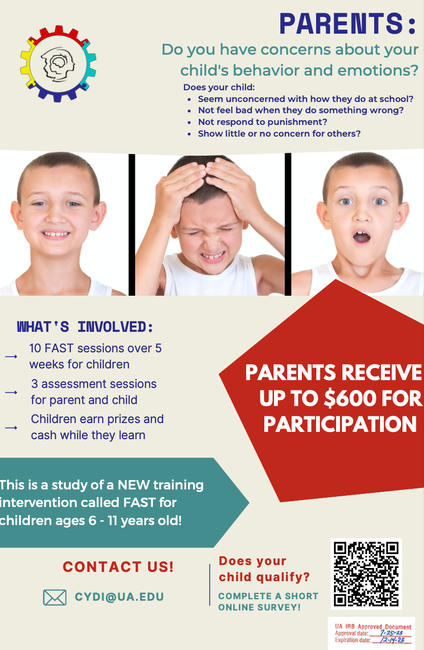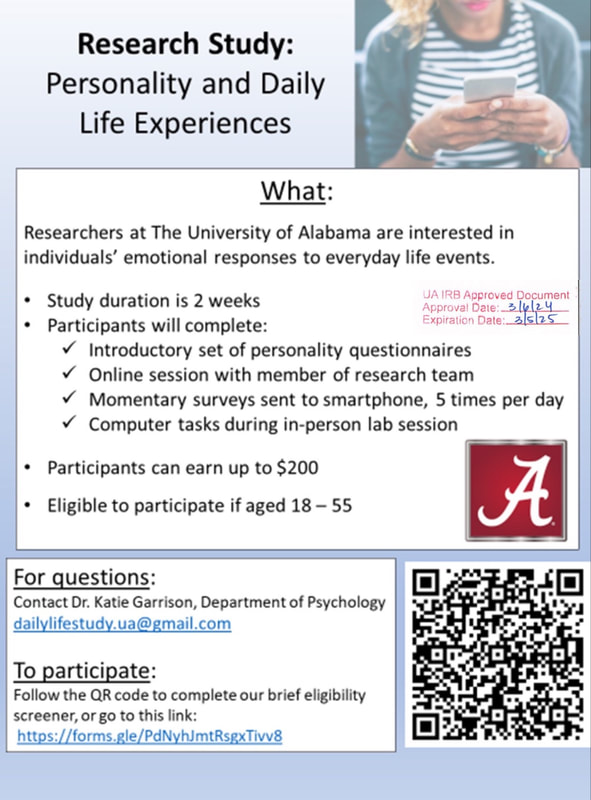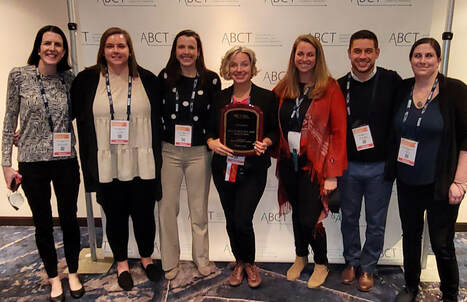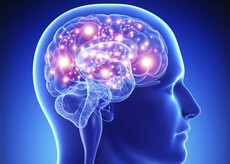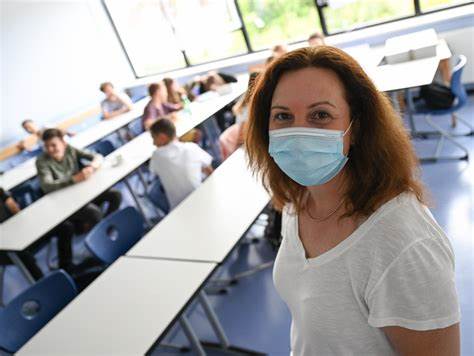FAST Clinical Trial Interview with CBS 42 News!
|
Dr. Bradley White had the opportunity to interview with CBS 42 News on June 26, 2024, to discuss his Facial Affect Sensitivity Training (FAST) Clinical Trial and seek local families to participate in the research study.
His interview will be featured during the noon newscast on Friday, June 28, 2024! Click HERE to view the story on CBS 42 News website! Click the 'LEARN MORE' button to find out if your child is eligible! |
Spring 2024 Grant Workgroup
Every Spring, we host a grant workgroup for scientists at UA to workshop ideas and get peer feedeback. Feel free to message Susan if you are interested in Spring 2025 ([email protected]).
Congratulations Dr. Andrea Glenn!
Dr. Glenn has been announced as the winner of the 2024 Outstanding Graduate Mentor Award! Since her arrival to the University of Alabama in 2012, she has mentored 14 students. Dr. André Denham, Associate Dean for Graduate Academic Affairs, highlighted Dr. Glenn’s achievements in an email to the Graduate School community:
“Her mentees have been recipients of Graduate Council Fellowships, and National Science Foundation Fellowships, along with Departmental Thesis and Teaching Awards. Dr. Glenn has co-authored 26 journal articles with students, and her students have served as first authors on 11 of those articles. Dr. Glenn’s mentees have gone on to accept tenure-track professorships, and positions in the research industry, and have begun careers in clinical psychology. Her departmental nomination letter states that Dr. Glenn maintains high academic standards for students, is a positive role model of professional and ethical standards, and has a strong reputation for facilitating student learning.
The endorsement of Dr. Glenn for this award is in no small part due to the strong letters of support from former students. Her students speak strongly about the excellent education and mentorship they received from Dr. Glenn. One of Dr. Glenn's student nomination letters stated that she is “the embodiment of an exceptional mentor, demonstrating kindness, competence, and compassion”. Another nomination letter from a former student states that “because of the opportunities and support afforded me by Dr. Glenn, I am currently in a faculty position. I am fortunate to be in a role in which I can attempt to pay forward the excellent mentorship I received from Dr. Glenn”.”
Congratulations again, Dr. Glenn; we are lucky to have you as a part of CYDI!
“Her mentees have been recipients of Graduate Council Fellowships, and National Science Foundation Fellowships, along with Departmental Thesis and Teaching Awards. Dr. Glenn has co-authored 26 journal articles with students, and her students have served as first authors on 11 of those articles. Dr. Glenn’s mentees have gone on to accept tenure-track professorships, and positions in the research industry, and have begun careers in clinical psychology. Her departmental nomination letter states that Dr. Glenn maintains high academic standards for students, is a positive role model of professional and ethical standards, and has a strong reputation for facilitating student learning.
The endorsement of Dr. Glenn for this award is in no small part due to the strong letters of support from former students. Her students speak strongly about the excellent education and mentorship they received from Dr. Glenn. One of Dr. Glenn's student nomination letters stated that she is “the embodiment of an exceptional mentor, demonstrating kindness, competence, and compassion”. Another nomination letter from a former student states that “because of the opportunities and support afforded me by Dr. Glenn, I am currently in a faculty position. I am fortunate to be in a role in which I can attempt to pay forward the excellent mentorship I received from Dr. Glenn”.”
Congratulations again, Dr. Glenn; we are lucky to have you as a part of CYDI!
Dr. Andrea Glenn has been elected President for the Society for the Scientific Study of Psychopathy (SSSP)!!
The Society for the Scientific Study of Psychopathy (SSSP) is the leading international professional organization for psychopathy research!
Congratulations Dr. Glenn!
Congratulations Dr. Glenn!
NEW Therapies for Emotion Dysregulation in Autistic Teens and Young Adults!
Do you or your child struggle with managing emotions? You may be interested in our study, EASE UP!
Click the "LEARN MORE" box or scan the QR code to find out if you or your child is eligible!
Click the "LEARN MORE" box or scan the QR code to find out if you or your child is eligible!
New Research Opportunities for Autistic Teens and Young Adults!
We are now enrolling autistic teens and young adults in a new study that is evaluating a transition support program! The Stepped Transition in Education Program for Students with ASD (STEPS) is a program designed to support transition to growing independence among autistic adolescents and young adults.
Research Updates!
The SENSE ProgramSENSE Theatre is a theatre-based program developed to help kids who have autism develop social competence. In SENSE, kids learn about concepts like social encouragement, directed communication, and social acceptance by interacting with non-autistic and autistic peers in a fun and supportive environment. In this study, kids were randomly assigned to either SENSE Theatre or the control intervention, which was a group program addressing interpersonal relationships and intimacy. Kids who received SENSE exhibited changes in neural responses (brain activity) to social stimuli, which suggests heightened attention to social information, and these changes were linked to improvement in some social behaviors.
Want to learn more? Click HERE to read the full research article! |
The CYDI was one of three sites involved in a multisite clinical trial testing the effect of SENSE, a theatre program for kids with autism spectrum disorder. We are grateful to all the families who participated in this study, and to Ms. Sara-Margaret Cates, Theatre Director at Tuscaloosa Academy, for making this work possible.
If you are interested in being a part of treatment studies or other projects please consider joining our family registry: https://redcap.as.ua.edu/surveys/?s=PFK7MWMA37
|
Research Opportunities for Children!
|
We are now enrolling children with behavioral or emotional concerns in a new study to see if a training intervention helps them recognize feelings and expressions!
Scan the QR code or click the link to find out if your child is eligible to participate!
|
We are now enrolling in a new study to explore how children understand emotions through facial expression!
Scan the QR code or click the link to find out if your child is eligible to participate!
|
CYDI Spring/Summer Highlights
Tuscaloosa's Walk for Autism was so much fun! We enjoyed connecting with everyone and seeing all the smiling faces!
Recent Study Publications at CYDI
|
Black adolescents' racial experiences and school support
Olivia Thompson
It is all too common for Black Americans in higher education to find few peers and faculty who look like them. A few societal systems contribute to this uncomfortable reality. For example, Black students in the United States are more likely than their white counterparts to face suspension and expulsion from school for engaging in similar behaviors, contributing to the 'school-to-prison pipeline' and the disproportionate numbers of Black people in the US prison system. Black individuals also tend to have low socioeconomic status in the USA.
Experimental Therapeutics in Clinical Child and Adolescent Psychology: Identifying Mechanisms and Moving the NeedleSusan White
The premise of experimental therapeutics is that one can (a) target a process, or mechanism, underlying psychopathology and (b) that change in said mechanism can cause clinical improvement. Targeting specific mechanisms may permit more effective and personalized medicine. The experimental therapeutics approach holds promise for improving the potency and efficiency of treatments for childhood psychopathology, and for advancing our understanding of the factors that both cause and sustain psychopathology.
Youth with Low Pre‑injury Mental Health Symptoms Are at a Higher Risk for Symptoms Following Mild Traumatic Brain Injury
Brandon McCormick & Andrea Glenn
Concussions are common in children and adolescents and may be related to long-term mental health symptoms. However, many studies do not consider how pre-existing mental health system might influence the effects of concussions on mental health. In this study, we used data from the Project on Human Development in Chicago Neighborhoods to examine this idea. We found that youth with lower levels of pre-existing mental health symptoms were at greater risk for increases in mental health symptoms following concussions compared to youth with higher pre-existing symptoms.
|
Association between lower-level of environmental lead exposure and reactive and proactive aggression in youth: Sex differences
Andrea L. Glenn, Yuli Li, and Jianghong Liu
Lead exposure during childhood has been associated with a variety of negative outcomes, including antisocial/aggressive behavior. The objective of this study was to examine relationships between childhood blood lead levels and proactive and reactive aggression. Further, sex differences were examined within these relationships. Results show that blood lead levels were associated with reactive but not proactive aggression. There was a significant interaction between lead level and sex in predicting aggression: boys with higher blood lead level were higher in both proactive and reactive aggression, but these differences were not present in girls. Therefore, lead exposure may have broad effects on antisocial behavior, but boys may be more susceptible than girls.
The Perceived Effects of the Onset of the COVID-19 Pandemic: A Focus on Educators' Perceptions of the Negative Effects on Educator Stress & Student Well-Being
Catherine Bradshaw, Joseph Kush, Summer Braun, & Emily Kohler
The COVID-19 pandemic resulted in an urgent pivot to remote learning, causing many challenges for teachers and school administrators. The current study sought to better understand the extent to which the perceived negative impacts of COVID-19 on U.S. educators and their students varied as a function of staff role (teacher vs. administrator), school level (elementary vs. secondary school), and type of school setting (public vs. private), as reported through a national survey of educators conducted in June through July of 2020. Using data from 608 educators (n=481 teachers and n=127 administrators; 48% elementary; 85% public school), we examined educators’ perceptions of negative impacts on their personal lives, professional lives, and students’ lives; major challenges; and stress in various domains. Findings suggested an overall high level of concern across domains. Investigation of educator subgroup effects suggested elementary educators and administrators were most concerned about the negative impacts on students.
|
Emotion regulation and executive function: Association with depression and anxiety in autism
Caitlin M. Conner, Rebecca Elias, Isaac C. Smith, & Susan W. White
Adolescents and young adults with ASD often experience co-occuring mental health conditions such as mood or anxiety problems, as well as impairments in emotion regulation and executive functioning. However, little research has examined inter-relationships among these constructs. This study aimed to examine whether executive functioning impairment, above and beyond emotion regulation impairment, were associated with depression and anxiety symptoms. Results suggest that ASD characteristics, emotion regulation, anxiety, and depression were significantly correlated. Emotion regulation impairments were significant contributors to anxiety and depression. Inhibition difficulties did not uniquely contribute to depression or anxiety above and beyond emotion regulation impairment. Difficulties in cognitive flexibility were associated with depression above and beyond other factors, but not associated with anxiety. Therefore, improving emotion regulation may have broader transdiagnostic impact across both mood and anxiety symptoms in ASD.
Profiles of teachers’ occupational health: Associations with classroom management practices, gender, and raceSummer Braun, Chelsea Kaihoi, Heather McDaniel, & Catherine Bradshaw
This study examined teachers’ occupational health, measured by feelings of job stress, burnout, and teaching self-efficacy. Results from 516 teachers indicated that there were four profiles of teachers: lowest occupational health (17% of the sample), low-to-mid occupational health/mid self-efficacy (38%), mid-to-high occupational health/mid-self-efficacy (30%), and highest (15%) occupational health. Proactive behavior management practices were observed less frequently for teachers in the lowest (vs. highest) occupational health profile. White female teachers were associated with profiles of low occupational health more than White male teachers, and male and female teachers of color. Findings offer insight into the consequences of poor occupational health along with who may be at risk for experiences of poor occupational health.
|








